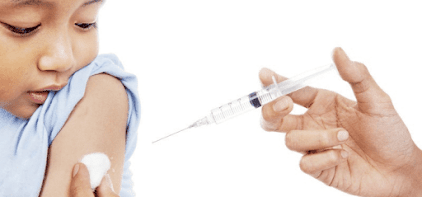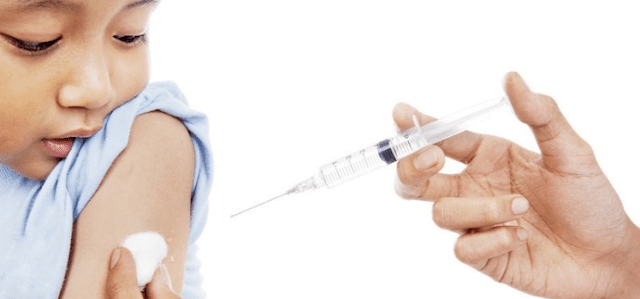What Shot Does My Baby Need and When?
Whenever a baby is born, a child specialist comes to examine the infant's overall health. After that, the doctor induces injections into the newborn's body. These periodic injections are essential safety concerns for kids' health. Baby vaccines protect vulnerable newborns against life-threatening diseases such as chickenpox, polio, MMR, jaundice, etc. As a result, baby pediatricians in Delhi prescribe a scheduled chart to make a baby vaccination.
This article by Dr. Promilla Butani discusses the disease, safety concerns, and the right time for baby vaccination. Read the post and learn about the availability of baby vaccination in South Delhi.
Based on a kid's age, child specialists in Delhi classify baby immunization into two categories:-
0-5 years
6 - 18 years
During the first 5 years of life, a child is the most vulnerable. As a result, child specialists in South Delhi prescribe monthly immunization. Some of the most vital immunizers for 0 to 5 years toddler are underneath:-
BCG
BCG stands for Bracile Calmette-Guerin and is a tuberculosis (TB) vaccine. This vaccine stops the development of TB tissues. TB is a severe lung disease. As a result, the right for BCG injection is just a few hours to the day after the child's birth.
IPV
Poliovirus impacts a child's leg growth. The infected toddler experiences discomfort while moving. Infection of poliovirus is non-treatable; as a result, child specialists recommend Inactivated Poliovirus Vaccine (IPV). Only four doses of this vaccine make a toddler safe from poliovirus. The right time for IPV doses is during an infant's second, fourth, sixth, and eighteen months.
OPV
There are three types of poliovirus- Type 1, Type 2, and Type 3. OPV stands for Oral Polio Vaccine in combination with IPV, which works more effectively on all types of poliovirus infections. OPV creates antibodies to fight against the paralysis caused by failure of the nervous system.
aP and wP
Acellular Pertusis (aP) and Whole Cell Pertusis (wP) are two vaccines for Diphtheria and Tetanus whooping cough. These vaccines prevent kids from the contagious disease of mucous formation, cut by any insect or iron-made tool. The right time to induce these vaccines is anytime after six weeks of an infant's birth. Here it is to note that aP and wP are DTAP vaccines with different aftereffects like fever and pain. In such circumstances, one must consult the kid's medical condition with the best child specialist in South Delhi.
HIB
The Haemophilus influenzae type b (Hib) vaccine is a vaccine that protects against Haemophilus influenzae type b bacteria, which can cause serious illnesses such as meningitis, pneumonia, and epiglottitis. The vaccine is typically given to children in a series of doses, starting at two months of age, with additional doses at four, six, and 12-15 months.
The Hib vaccine is usually given as a combination vaccine with other routine childhood vaccinations, such as the DTaP (diphtheria, tetanus, and acellular pertussis) vaccine, and is generally well-tolerated. Mild side effects, such as redness or swelling at the injection site, fever, and irritability, may occur, but severe side effects are rare.
Rotavirus Vaccine
Diarrhoea is a common health problem caused by water deficiency, weakness, and loose motions. This life-threatening problem with infants is caused by rotavirus. But fortunately, there is a vaccine named rotavirus vaccine that protects infants against the highly contagious virus. The vaccine is usually given to infants in a series of doses, starting at two months of age, and typically given with two or three additional doses, depending on the brand of vaccine.
Rotavirus is one of the leading causes of severe diarrhea in children under five and can also cause vomiting, fever, and dehydration. In extreme cases, it can lead to hospitalization and even death. However, the rotavirus vaccine is highly effective in preventing rotavirus infection and reducing symptoms' severity in those who get infected.
There are currently two types of rotavirus vaccine available - a monovalent vaccine and a pentavalent vaccine. Both types are typically given orally and are generally well-tolerated. Mild side effects, such as fussiness or mild diarrhea, may occur, but severe side effects are rare.
Measles
Measles is a contagious virus that usually attacks children. This highly infectious virus leads to severe illness and complications, including pneumonia, encephalitis, and even death. The measles vaccine protects kids against this virus. The vaccine is typically given to children in two doses, with the first dose given at 12-15 months of age and the second at 4-6 years of age.
Flu Vaccine
The flu vaccine, also known as the influenza vaccine, is a vaccine that helps protect against the influenza virus. The flu is a highly contagious viral infection that can cause severe respiratory illness, especially in young children, older adults, and people with weakened immune systems.
The flu vaccine is usually given annually, as the circulating strains of the virus can change from year to year. The vaccine is typically recommended for everyone over six months, especially those at higher risk of complications from the flu.
The flu vaccine is generally safe and well-tolerated, with mild side effects such as soreness at the injection site, fever, and fatigue being the most common. Serious side effects are rare.
Thyroid Conjunctive Vaccine
Typhoid fever is a bacterial infection caused by the salmonella typhi bacteria. It is typically transmitted through contaminated food and water and can cause high fever, headache, diarrhea, and abdominal pain. It can cause complications such as intestinal perforation and even death in severe cases.
The Typhoid Conjugate Vaccine (TCV) is a vaccine that helps protect against typhoid fever. It stimulates the body's immune system to produce antibodies that can recognize and fight the bacteria that cause typhoid fever.
The TCV is usually given in a series of two doses, with the first given at nine months of age or older and the second given at least six months after the first dose. The vaccine is highly effective, with studies showing it can protect against typhoid fever for up to three years after vaccination.
Baby vaccination for the age group of 6 to 12 years includes the below-mentioned vaccines:-
DTap Booster
MMR booster
Human Papillomavirus
Meningococcal Vaccine
Hepatitis A & B vaccines
Typhoid Vaccine
Baby vaccination is essential for vulnerable kids' immune systems. So to avoid missing the right time for a baby's vaccination, visit Dr. Promilla Butani, the best child specialist doctor in South Delhi.




Comments
Post a Comment